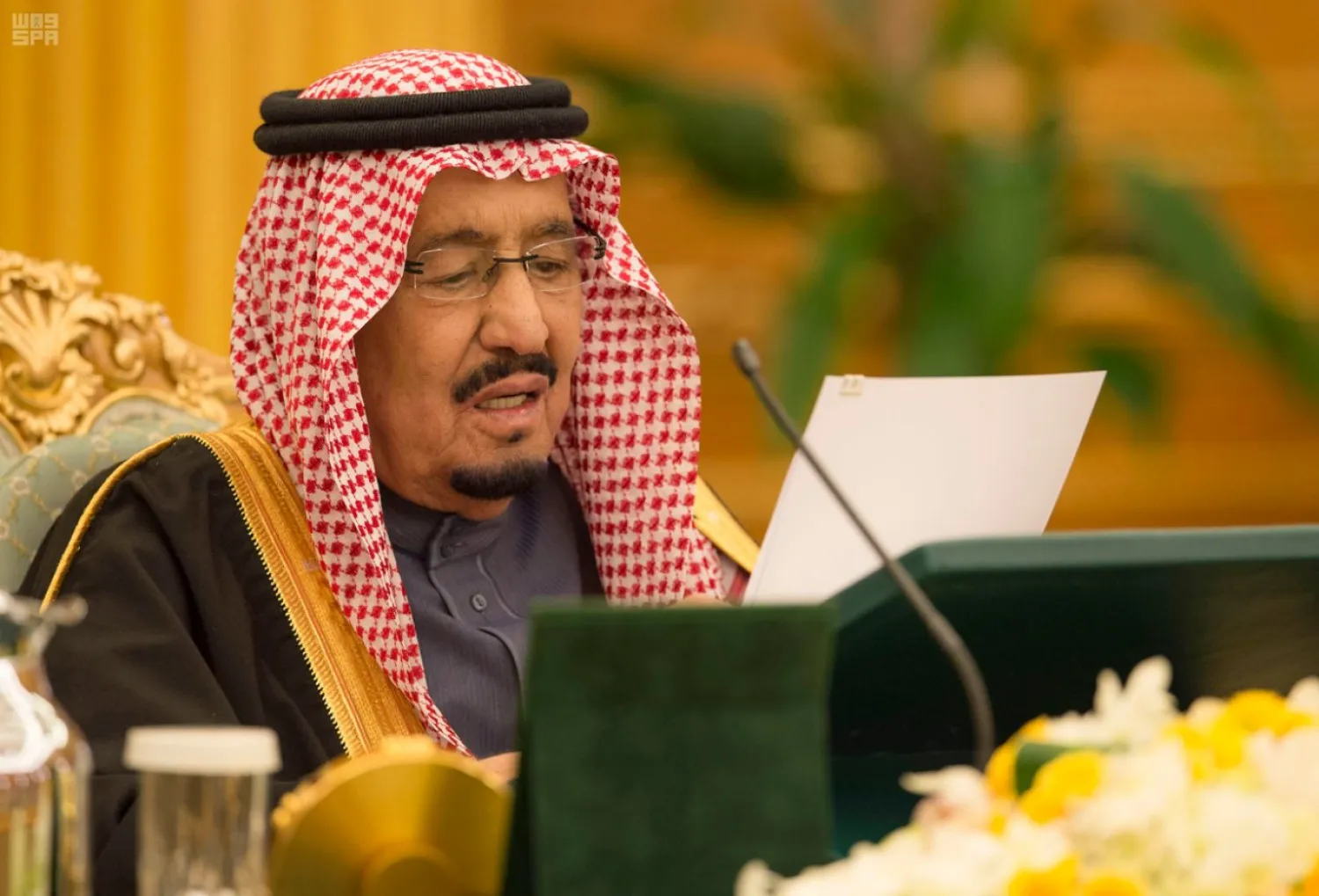Custodian of the Two Holy Mosques King Salman bin Abdulaziz unveiled on Tuesday the 2018 state budget, the largest in the Kingdom’s history, reported the Saudi Press Agency.
He made the announcement during a cabinet session held at the Yamama Palace in Riyadh, where he addressed the nation to reveal the record budget.
He said that the new budget was based on low oil price levels compared to previous years, in order to continue the development and enhancement process towards achieving the Kingdom Vision 2030.
Vision 2030 aims at increasing the size of the national economy and sustain its growth, through diversification of economic base, sources of income and the capacity to adapt with developments and overcoming challenges.
King Salman said that dozens of programs have been launched to realize the goals of diversifying the economic base and empower the private sector to play a major role, in sustaining expenditure efficiency, in order to realize appropriate economic growth rates, mitigate the burden on the citizens and tackle possible impacts, in addition to supporting the private sector, reported SPA.
The Custodian of the Two Holy Mosques hailed achievements related to decreasing the deficit of the budget of the current fiscal year that exceeded 25% compared to the last fiscal year, despite increasing the expenditure. He added that the target is to decrease the deficit of the next year budget to be lesser than 8% of the Gross Domestic Product, in spite of the great and expansionary volume of the budget.
The King stated that government programs have managed to downsize dependency on oil to about 50%. He stressed that the development funds and the General Investments Fund take part in the capital and investment expenditure, with portions that exceeded capital expenditure volume, in the budgets of previous years, in addition to government keeping leading with capital expenditure, at an increase of 13%.
As a result, the government decided to invest these successes, expand development and adjust the fiscal balance program to be the year of balance (2023).
While maintaining fiscal policies, including the level of debt to GDP to remain below (30%) with a level of deficit to be gradually decreased.
This budget continues to disburse on various development sectors in all regions of the Kingdom at high rates.
It also includes allocations for housing, and a large expenditure of government funds that would contribute to push the economic wheel forward, and provide more employment opportunities for male and female citizens.
“We have directed ministers and all officials to raise the level of performance, develop government services and enhance the efficiency of expenditure and transparency to meet the aspirations and the satisfaction of male and female citizens for the services provided to them as well as to reflect the desired objectives of the allocated amounts in this budget, and the emphasis on continuing to fight corruption and maintain public money,” said King Salman.
“I have taken into consideration the continuation of work towards comprehensive and balanced development in all regions of the Kingdom, without any distinction.”









